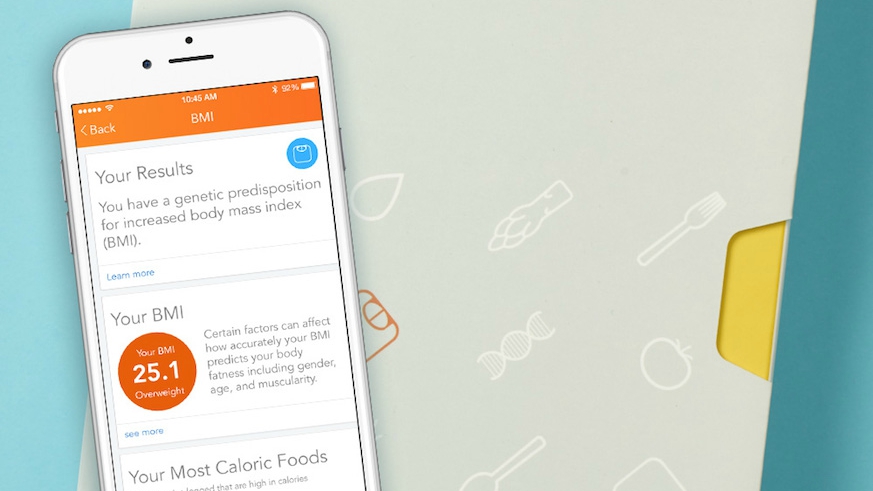What’s the secret to losing weight?
It’s probably not in the latest fad diet you heard about, but it may be in your own DNA.
Boston-based weight-loss tracking app Lose It! wants to help you tap into your genetic code so you can better understand your diet and nutrition needs.
Lose It! Announced this week its embodyDNA service, a partnership with Helix, a Silicon Valley genome sequencing startup. Lose It! says that it’s the first DNA-based weight loss plan to give results through an interactive in-app experience.
With the app, users track their food and exercise, but the company was looking to give people an even more personalized experience on their weight loss journey, said Kevin McCoy, the senior vice president of business development.
“What we learned was that people are quite a bit more successful when they get more personal insights. That’s where the DNA idea came in,” he said. “We thought it’d be really interesting if we could give people insights into their body chemistry.”
The DNA kit costs $189.99, and you simply send in a sample of your saliva and Helix sequences your genes in about six weeks. The results will appear up right in your Lose It! App, showing you some genetic trails across four categories: weight loss, nutrition, fitness and food sensitivity.
“One [trait] is saturated fat, so if you’re predisposed to the saturated fat trait, it means if you consume more than 22 grams of saturated fat at a day, there’s a likelihood of gaining weight,” McCoy said. “Only 5 percent of the population is predisposed to that, so it’s a really interesting thing to learn about, that saturated fat does matter to you.”
Other traits will tell you if you’re lactose or gluten intolerant, your sensitivity to sugary drinks and your nutrient macros, like if you’re predisposed to having lower levels of iron.
From there, the app will suggest some food options for you — for example, things higher in iron to fill that nutritional need.
Your DNA isn’t going to give you an exact roadmap to losing those inches on your waist, though. Robert Green, a geneticist at Harvard and a compensated advisor to Helix, warned that it’s not that clear cut, but being informed about your body can still help you focus on it in a positive way.
“As long as companies are selling education about these features in a way that engages people with the notion of their bodies, with diet, with exercise, and they’re using this as a way to enrich the engagement with healthy things they should know and do anyway, then I think it’s fine,” he said. “I think what is not scientifically valid is the notion that there’s any evidence that individuals can achieve specific outcomes based on their DNA.”
That education is the key, McCoy said. The app will show you the science behind the results, nutrient details of your food and exercise behaviors and provide expert information in references and studies, he said, “So you can go as deep as you want.”
Plus, if you learn that you’re predisposed to certain deficiencies (like low iron) or abundances, McCoy advised that you can take the DNA results to your doctor for professional help in making better diet decisions.
























